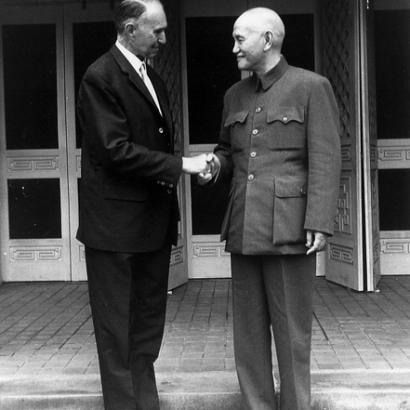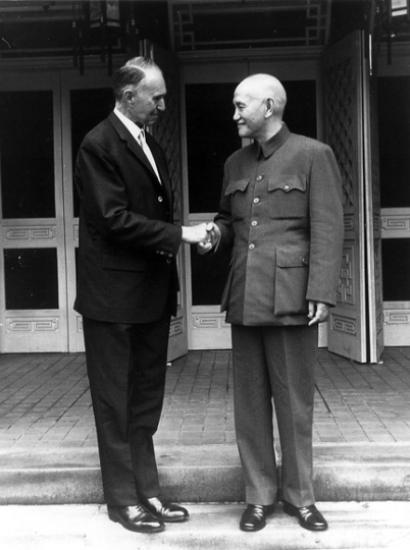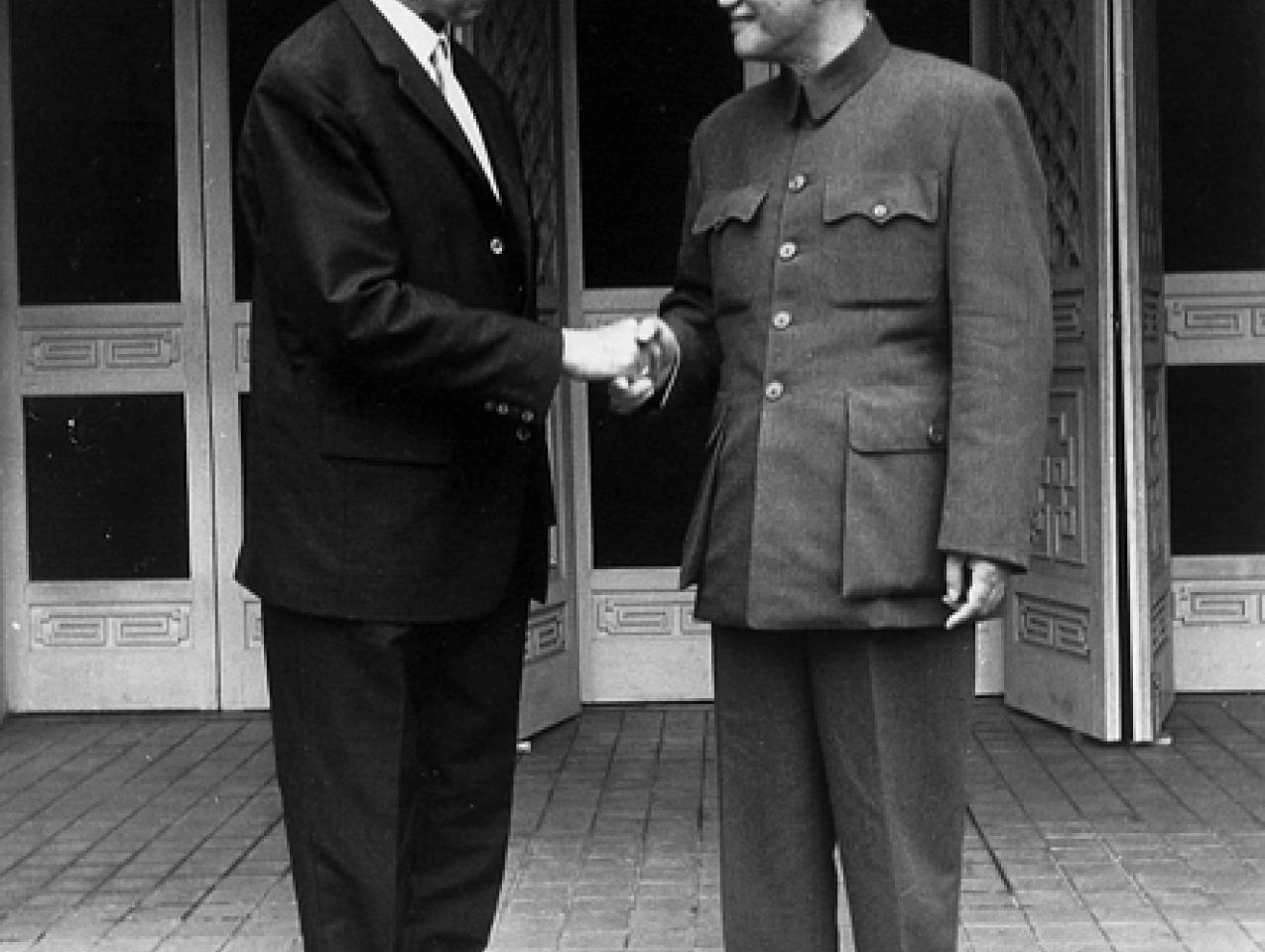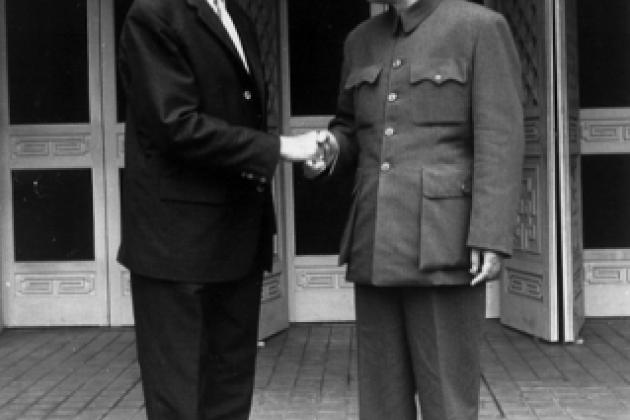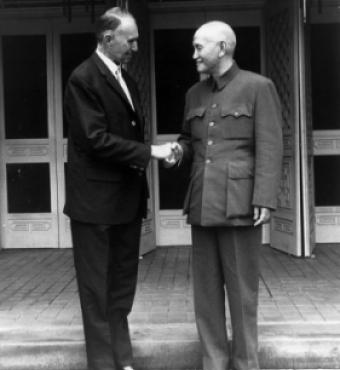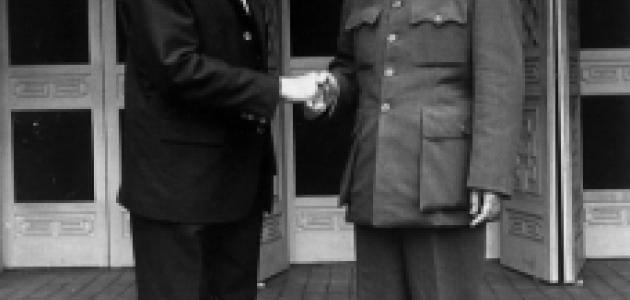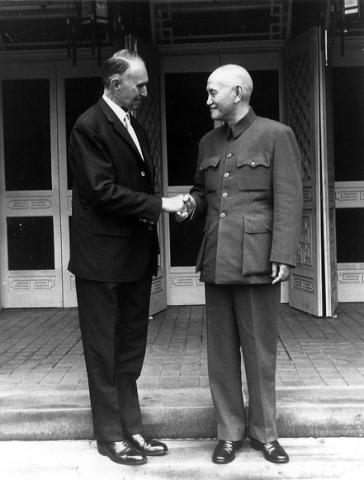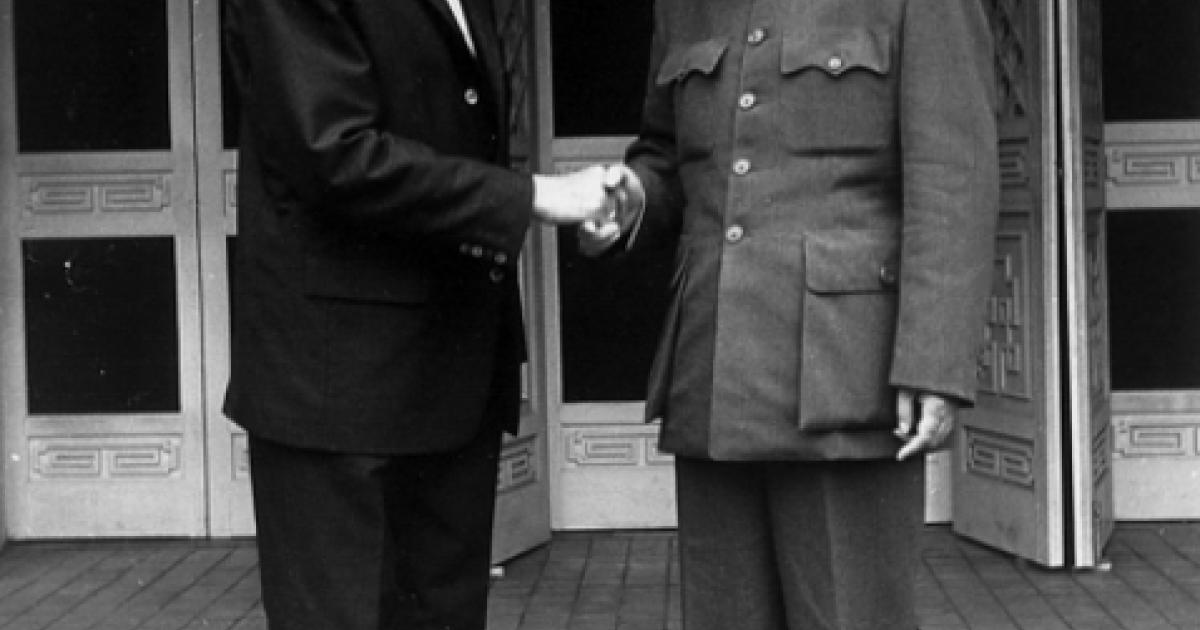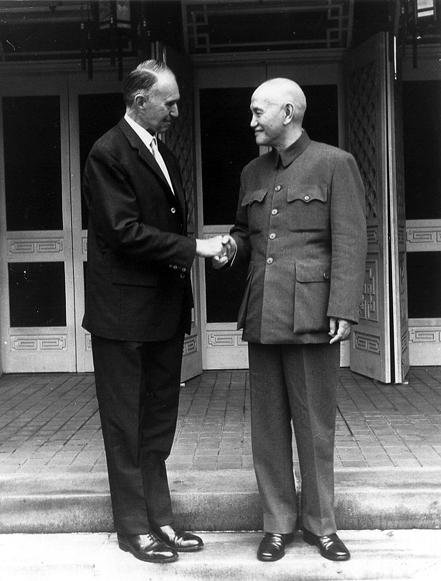

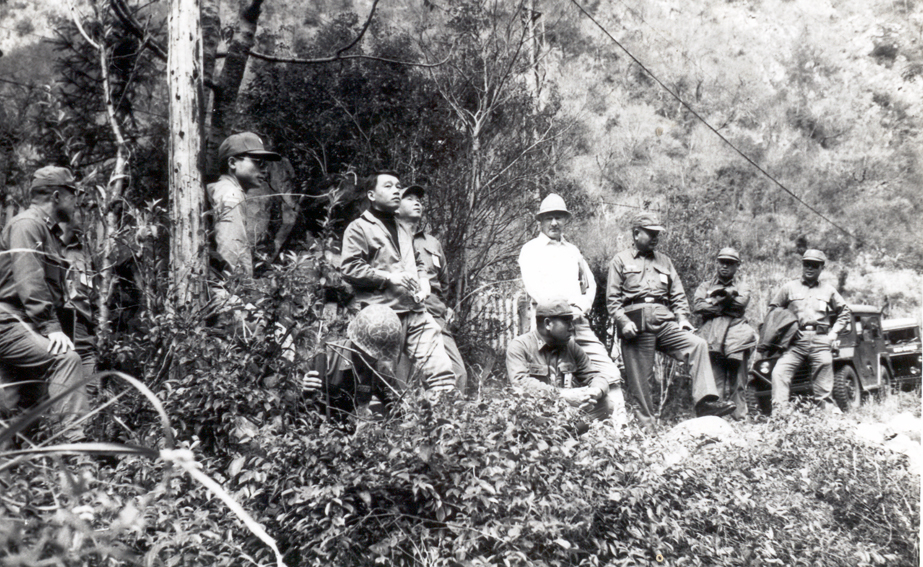
For decades after his defeat by the Chinese Communists in 1949, Chiang Kai-shek relied heavily and almost exclusively on the United States to defend and consolidate his island redoubt, Taiwan, against the communist invasion. Under the facade of an ostensibly formidable US-Taiwan alliance during the cold war, however, Chiang would, from time to time, turn to his erstwhile enemies in World War II for military advice. In the early 1950s, he covertly employed former Japanese officers to educate his army officers. Beginning in the early 1960s, as the Hoover Archives’ newly opened Yue-che Wang Papers reveal, Chiang hired former German officers as his “personal advisers” to train, lecture, and assess the Taiwanese military forces. Led by Oskar Munzel, a highly decorated Generalmajor in the Wehrmacht during World War II and General der Kampftruppen of the Bundeswehr who commanded all German army combat troops after the war; and Paul Jordan and Kurt Kauffmann, they all played a crucial role in reforming Taiwan’s armored forces, bridging military cooperation between Bonn and Taipei, and transforming the mind-set of Chiang’s military echelons. The German group was still at work well into the mid-1970s, after Taiwan was expelled from the United Nations and Bonn normalized its relations with the People’s Republic of China. It came to a stop only after Chiang Kai-shek died in April 1975.
Yue-che Wang had served as an aide de camp to Oskar Munzel when the latter was a personal adviser in Taiwan. Wang’s papers, in Chinese and German, include correspondence, reports, memoranda, and minutes of the Germans and their meetings, as well as photos depicting their underground activities in Taiwan.
Also in this collection are dozens of rare photos depicting the naval activities from the late Qing dynasty to the 1950s in the Republic of China, when Wang’s grandfather was serving in the Chinese Navy. These rare historical materials will provide scholars with glimpses into a previously unknown tie between Taiwan and West Germany that will enrich our understanding of the intricate cold war politics in East Asia and Europe.




